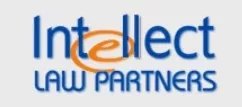It is a general perception that shareholder agreements ("SHAs") cease to be operational upon the listing of a company as the shareholding structure of the company undergoes a paradigm shift.
However, the reading of law, regulations reveal to the contrary, though subject to certain restrictions.
Regulation 4(2)(d)(i) of the SEBI LODR, 2015 which states that a listed Company shall respect the rights of the shareholders that are established through law or through mutual agreements. The relevant extract is as under:
"(i) The listed entity shall respect the rights of stakeholders that are established by law or through mutual agreements."
Rights established through mutual agreements with respect to transfer of securities are also recognised in the proviso to Section 58(2) of the Companies Act, 2013 which states that, in dealing with public companies, "any contract or arrangement between two or more persons in respect of transfer of securities shall be enforceable as a contract."
Apparently, SEBI and the Companies Act recognise the rights of stakeholders, which include shareholders which are established through mutual agreements which, in our opinion includes shareholder agreements.
As such, the rights enshrined in the AoA and SHA of a Company do not cease to operate through the sheer issuance of a public offering of the equity shares of the Company.
It is pertinent to mention herein that provisions of SHA without being incorporated in the AOA, though may be enforced against the other shareholders, but would not be binding on the Company1.
However, later on, in the case of Vodafone International Holdings B.V. vs. Union of India[2] the Supreme Court took a different view and held:
"this court (in V.B. Rangaraj) has taken the view that provisions of the Shareholders' Agreement imposing restrictions, even when consistent with Company legislation, are to be authorized only when they are incorporated in the Articles of Association, (is) a view we do not subscribe. (Therefore,) the shareholders can enter into any agreement in the best interest of the company, butthe only thing is that the provisions in the SHA shall not go contrary to the AoA. The essential purpose of the SHA is to make provisions for proper and effective internal management of the company. It can visualize the best interest of the company on diverse issues and can also find different ways not only for the best interest of the shareholders, but also for the company."
There have been cases wherein certain rights under SHAs have survived even after listing, most notable cases being Jet Airways (India) Limited and Interglobe Aviation Limited.
In the case of Interglobe Aviation Limited (the "Indigo"), even after its public issue, its Promoter Group retains certain rights based on the shareholders agreement as inculcated in the AoA.
Pursuant to the AoA and the shareholders' agreement dated April 23, 2015, as amended vide the agreement dated September 17, 2015, that Indigo entered into with IGE, Acquire Services, Mr. Kapil Bhatia, Mr. Rahul Bhatia and Ms. Rohini Bhatia, (together the "IGE Group") and Caelum Investment LLC, Mr. Rakesh Gangwal, Ms. Shobha Gangwal and The Chinkerpoo Family Trust (together the "RG Group"), who enjoy certain rights as detailed below:
(i) the IGE Group had the right to nominate three Directors and the RG Group had the right to nominate one Director; one from each group being non-retiring Directors,
(ii) the Chairman of the Board was required to be nominated by the IGE Group, and
(iii) the IGE Group had the right to nominate and appoint the Managing Director, the Chief Executive Officer, and the President of Indigo, subject to compliance with Indian law that requires that any such appointment be approved by the shareholders at a shareholders' meeting in the case of the Managing Director, and by the Board in the case of the Chief Executive Officer and the President.
(iv) If any member of either the RG Group or the IGE Group proposes to transfer its shares to a third party purchaser (not being an affiliate) otherwise than on a Stock Exchange or by way of a pre-negotiated sale on a stock exchange, then the other group will have the right of first refusal and tag along right.
(v) With effect from the completion of the initial public offering, neither Indigo nor the shareholders nor the board of directors of Indigo could take any action with respect to the following without the prior written consent of the RG Group Director and the IGE Group Director: (i) any amendment or restatement of the Memorandum or Articles of Association of the Company; (ii) rights issue by the Company; (iii) transactions between the Company or any of its subsidiaries with any shareholder of the Company or any of their respective affiliates other than on arms' length terms; (iv) incorporation or acquisition of a new subsidiary or affiliate of the Company; (v) any declaration, distribution or payment of any dividend or other distributions on any equity shares of the Company; and (vi) any change in the number of directors on the board of directors of the Company.
Such rights were exercisable by IGE Group and RG Group until November 9, 2019, four years from the IPO. However, due to certain disputes between the promoters, the RoFR clauses continued to be binding even thereafter, wherein following a decision by the London Court of International Arbitration, an EGM was called and after voting in the EGM, the said clause was deleted.
As such, it is evident that certain clauses of Shareholder Agreements can continue to be in force even after a public issue and rights ascribed to therein continue to be enjoyed by certain shareholders.
However, SEBI, has proposed certain changes to the present regime. The Consultation paper3 proposes to introduce measures to protect the interests of minority shareholders, including the Equitable Treatment, right to receive dividends and participate in share buyback and seeks to strengthen corporate governance at listed entities by empowering the shareholders to address the several issues including issue of Special rights granted to certain shareholders. The underlying principle is that the shares issued in the IPO shall rank equally with the existing shares and any right which is not available to other shareholders is not be permitted to survive after listing.
The Consultation Paper stressed the need for periodic approval for the special rights granted to certain shareholders and as such proposed that any special right (existing / proposed) granted to a shareholder of a listed entity shall be subject to shareholder approval once in every 5 years from the date of grant of such special rights.
Apparently, it is proposed that any special rights (existing / proposed) granted to a shareholder of a listed entity shall be subject to shareholder approval once in every 5 years from the date of grant of such special rights. So the focus in future is on granting rights to the shareholders to determine whether the special rights can continue or cease.
Footnotes
1. V.B. Rangaraj v. V.B. Gopalakrishnan and Ors [(1992) Comp LJ 11 (SC)]
2. [(2012) 6 SCC 613]
3. Consultation Paper On Strengthening Corporate Governance At Listed Entities By Empowering Shareholders - Amendments To The SEBI (LODR) Regulations, 2015 Dated 21.02.2023
The content of this article is intended to provide a general guide to the subject matter. Specialist advice should be sought about your specific circumstances.


